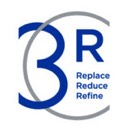Karl Hillebrandt | Charité 3R Tandem project for early career researchers

Although modern multimodal therapy strategies have improved the clinical outcome of patients with colorectal liver metastases (CRLM), the overall prognosis is still poor. To further improve treatment options for patients, it is necessary to develop and test new targeted therapeutic approaches. To date, mouse models have often been used to study metastatic colorectal cancer. However, the rate of successful translation of animal models into clinical trials is less than 8%, highlighting the urgent need for alternative models to study the biology of metastatic cancer. This project aims to develop a novel personalised extracellular matrix-based in vitro model of human CRLM. This model will be validated against existing data from patient-derived organoids and xenografts (histology, single cell RNA sequencing and targeted gene sequencing). After internal comparison of our in vitro CRLM with the original CRLM, we will translate it into a personalised drug screening platform to test drug response from standard therapy to novel inhibitor combinations.

